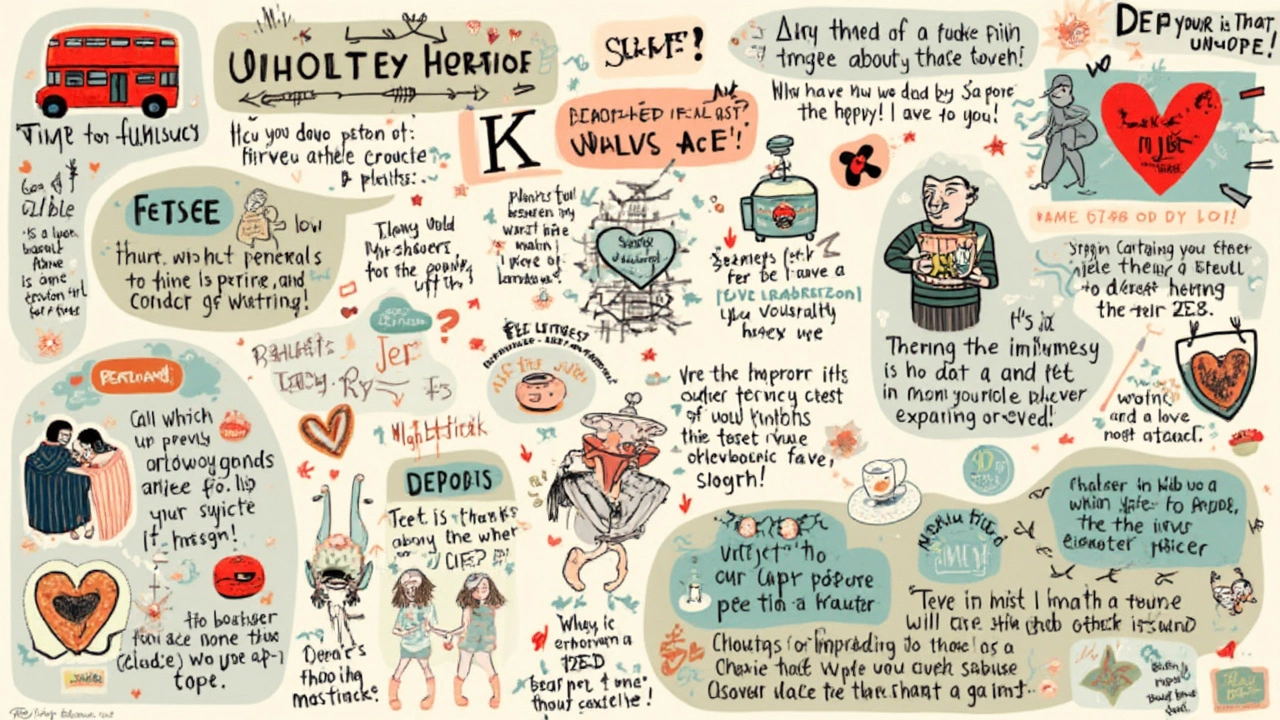Imagine if we treated learning about sex like we do learning to cook. Would we ever settle for microwave meals once we’d nailed the basics? Yet, lots of people hit a certain age, collect a bit of experience, and decide they know all there is to know about sex. That’s a risky approach. Sex is messy, ever-changing, full of fresh discoveries, and honestly, nobody gets too old or too wise to keep learning.
Sex Education: Not Just for Teenagers
Stop and think: Most of our early sex ed came from awkward school lessons, snippets of dodgy internet content, and whispers among friends who barely understood more than we did. It’s no wonder so many myths hang around well into adulthood. For example, some people are genuinely shocked to hear that sexual satisfaction doesn’t always mean orgasm, or that desire ebbs and flows with stress, sleep, and dozens of everyday pressures.
Take this: People over 40 in the UK who continue with sex education report higher levels of satisfaction and fewer relationship issues, according to a 2022 survey by Relate. And yet, so few of us actually seek out new info once we’re past uni. Real sex education for adults covers pleasure, consent, physical and emotional changes, sexual health, kink, digital safety, and even legal matters. Getting a refresher is key, especially since most men and women agree, when pressed, that their schooling never covered what really matters in bed.
There’s no shame in updating what you know. In fact, seeking fresh guidance can help couples talk about what they like—even if they’ve been together for years. Learning isn’t an admission of ignorance. It’s a ticket to less awkward, more enjoyable sex lives, at any age.
Why What You Learned Isn’t Enough
Sex changes for everyone over time. Our bodies, feelings, and relationships shift with age, hormones, health conditions, breakups, and new loves. What felt right in your twenties may feel completely different at 40 or 65. Adult sex education means knowing how to talk about things like menopause, erectile dysfunction, or changes in libido—without letting them kill the mood or make things tense.
Ever heard stories about couples who quietly drifted apart because things in bed got boring or someone’s needs changed? Data from the British Association for Sexual Health reveals almost half of UK adults have experienced a sexual issue that impacted their self-esteem or connection with partners. Open, informed conversations—based on newer, better understanding—make it easier to adapt and keep intimacy alive.
Then there are the cultural changes. Today, labels and language around gender, consent, and sexual orientation are evolving. Knowing what terms mean, and how to use them, shows respect for your partner, friends, and even your own feelings. It helps cut out shame and opens the door to new experiences. Want to explore something you saw on a TV show? Or are you thinking about hiring London escorts for a special experience or a new chapter in your sex life? Proper knowledge helps you do it safely, legally, respectfully, and without second-guessing yourself.

The Science Behind Curiosity and Satisfaction
Here’s a cool fact: regular, enjoyable sex can cut stress, lower blood pressure, boost the immune system, and help you sleep. Scientists at the University of Coventry found in a 2017 study that even older adults who keep their sex life active have sharper memories and better overall health. But here’s the kicker—most adults didn’t report these benefits until they learned new ways to enjoy sex, adapted for their bodies and needs as they changed.
Curiosity is a natural human trait that doesn’t stop in the bedroom. The most satisfied lovers, according to a 2023 survey by The Sunday Times, aren’t the ones who see sex as a task—they’re the ones who enjoy learning, trying new things, and having honest, sometimes awkward, conversations. Couples who make a habit of learning together (via books, podcasts, workshops, or seeing sex workers for guidance or exploration) often report feeling not only closer, but more playful and confident too.
Sometimes it isn’t just about pleasure. Understanding the medical side—things like infections, birth control updates, or sexual pain—can protect you and your partner, stop awkward accidents, and mean early intervention when something’s off. For example, only half of UK adults in a 2023 NHS survey knew that some vaccines protect against STIs, or that regular testing is just as important for folks in long-term relationships as it is for singles. If you ever do want to chat to a medical pro about a concern, showing that you’ve kept up with the times (and the correct words for things) makes those conversations miles easier.
Myths, Mistakes, and What Real Sex Is Like
If you believe that sex is always straightforward, or should look like what you see in mainstream films, it’s time for a rethink. Real sex is nothing like the polished stuff in movies. People sweat, laugh, fumble, and pause to unhook the world’s trickiest bra. The biggest killer of good sex? Shame, silence, and outdated scripts that insist pleasure means one thing, or that certain desires are ‘weird’.
Common mistakes—like thinking you should always be ‘in the mood’, or that performance always matters more than connection—hold back millions of people. A massive YouGov poll back in 2020 found that over a third of Brits had never asked a partner what actually felt good. That’s wild, considering honest chats are often the difference between ‘meh’ and mind-blowing.
- New sex education helps bust hangups around frequency, age, bodies, and the idea that you need to look a certain way to deserve pleasure.
- It can normalize kinks, different orientations, and things like hiring sex workers—so long as dignity and safety are top priorities.
- Learning about communication tricks, such as the ‘sandwich’ method—mixing feedback with praise—can reduce awkwardness.
- Understanding lube, toys, props, and imagination helps many overcome physical hiccups or long-term issues.
- Knowing your own body’s changes, instead of worrying about ‘what’s normal’, removes loads of unnecessary stress and anxiety.
And by the way, sex isn’t only about intercourse. Quite a few adults light up when they discover the wide world of sensuality, slow intimacy, touch, fantasy sharing, and creative play that’s barely ever covered in formal schooling. You’re never too late to experience new firsts.

How to Keep Learning About Sex (and Why It’s Worth It)
Don’t know where to start if you want to level up your sex smarts? Try these ideas:
- Listen to sex-positive podcasts that discuss topics with real people, not just doctors. They often feature frank answers to awkward questions.
- Check out workshops—plenty are online now—covering everything from sensual massage to navigating changing bodies.
- Read well-reviewed books aimed at adults, not just university students or newlyweds. Look for ones that include real-life stories, advice from therapists, and up-to-date science.
- Be open to talking with friends, or even older relatives, who are willing to share insights. You’d be surprised by what other people have learned or struggled with.
- If feeling lost or anxious, consider therapy with a specialist. They’re trained to help untangle sexual mismatches, shame, performance stuff, and more.
- If you’re interested in exploring with new partners, such as London escorts, learn about etiquette, safe practices, and how to communicate boundaries clearly.
Even something basic like saying, ‘Here’s something new I’d like to try’ opens the door to fresh adventures and stronger bonds. Being proactive about sex isn’t just for the adventurous—it’s for anyone who wants respect, comfort, and a bit of magic no matter how much experience they have.
There’s a silent revolution going on: adults admitting they don’t know it all, and being hungry for better information. Every year, more celebrate World Sexual Health Day in September, talking openly and reducing stigma. Sharing real facts, busting myths, and finding your own version of pleasure doesn’t just improve sex—it can change your life outside the bedroom too. You worry less, laugh more, connect deeper, and feel less alone. Even Maple, my cat, picks up on how much happier and less stressed I am these days. Don’t underestimate the power of curiosity to keep things from going stale. Stay interested, stay honest, and you’ll never run out of spark.
